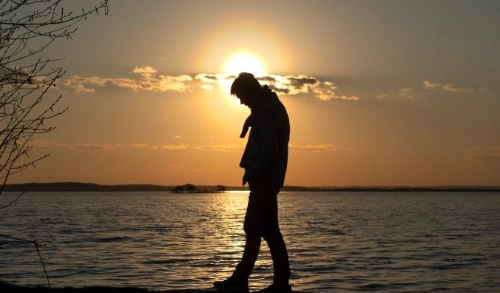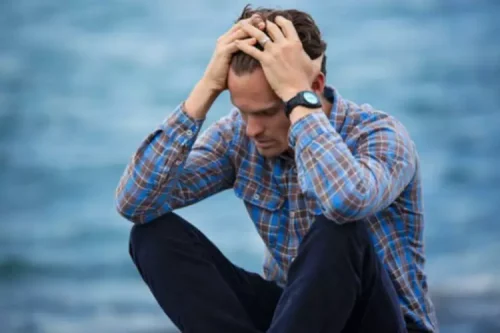For more information, visit the Allianz Global Assistance Canada website. Allianz’s Summer Vacation Confidence Study found that summer vacation confidence is on the rise with 61 per cent of Canadians planning to take a trip this summer. Summer travel intentions are highest among those aged (72 per cent confident) and families with kids (73 per cent confident). “Millennials quiet vacationing isn’t just about being out of the office; it reflects broader issues like an inability to disconnect, anxiety over requesting time off, and underused vacation days,” Rodney said.
Treatment Options

But when you’re in recovery, especially early recovery, the pool parties and vacations of summer can be major relapse triggers. Here are some tips for enjoying summer without getting off track. It’s more than possible to enjoy a vacation while avoidingtriggers and maintaining your sobriety, and Recovery Centers of America is here to help! Moreover, staying in touch with people who’ve supported you during addiction treatment can help you deal with triggers during your trip.
Recovery Peer Specialist: Ready to Get Certified?

All-inclusive means food, drinks, activities and entertainment are included in the cost of your trip. Flights, transfers &/or gratuities are not included, however. Work your program and everything that has brought you success to this point. Many will try and keep their daily structure in place, no matter what environment they are in.
- Jason is a strategist with many years of experience in healthcare finance, operations, and advocacy.
- Lauren received her BS and MS in social work from Southern Connecticut State University.
- If you’re in recovery, vacations can be a big threat to your sobriety.
- For many people, a “staycation” will be the way to go this year.
- We are not the alcohol police, and have not yet had an instance where someone’s drinking caused a problem for the group.
- This figure is higher among younger workers, with 37 per cent of Millennials and 24 per cent of Gen Z workers reporting they have taken part in “quiet vacationing”.
- Eastern Europe, India, and Southeast Asia are still comparatively small source markets, but they are developing fast-growing pools of first-time tourists (Exhibit 4).
ANNOUNCING SOBER GREEK ISLES CRUISE! JULY 2018
However, everyone needs a break occasionally and a vacation is an important way to rejuvenate the body. While too much downtime for someone in recovery could lead to temptation and relapse, there are plenty of tips for vacationing happily without threatening your sobriety. We all encounter triggers for our addictions in everyday life, but your summer vacation may present some different ones. vacationing in recovery Before setting off on your trip, think through how you could avoid or navigate your triggers. Also, talk to your travel companions about the kind of support you would like from them. You can ask them to remind you of your commitment to recovery, to help you get to your planned meetings, to meditate or exercise with you, or to help you get back to the hotel if you’re feeling triggered.
- Following these tips can help you get the most out of your time off without jeopardizing your addiction-recovery progress.
- If you feel you may be put in a tempting situation, distance yourself from the people you are traveling with or find a way to spend your time that doesn’t involve substances.
- The study also revealed that the average vacationing family intends to spend $2,728 on a summer vacation this year – which equates to roughly $24.9 billion collectively.
- For those in recovery, though, vacation can be stressful and present potentially dangerous situations as they are confronted with temptations or triggers that could make them vulnerable to a potential relapse.
- Avoid these missteps to stay on track with your recovery while on the road.
The Nuances of Supporting Women in Recovery
Communicating with the person or people you’re traveling with will be crucial to your success. Let them know what you’re dealing with and what you’ll need to avoid. The most important thing you can do before heading out on vacation is to make a plan. Plan every step of your journey, including how you’ll get from one place to another and how you will spend your time in each location.
- Healthy routines are a critical part of successful recovery from addiction.
- The stress of planning a vacation sober can be overwhelming and tempt you to use drugs to take the edge off.
- While vacation can be a great way to disconnect from much of the stress of everyday life, it’s essential that you don’t completely cut yourself off.
More Health:
If you are newly sober and fresh out of holistic rehab, reconsider leaving home for your vacation and plan a staycation instead. You have certainly earned a rest after working so hard to be substance-free, but this is not an ideal time to break out of your newly established schedule. Work, exercise, meetings, and extracurricular activities have been carefully balanced to give you full and healthy days, so you stay occupied and not tempted by drugs or alcohol. For me, feeling unwell is a big trigger, so I avoid that trigger by wearing comfy clothes on planes and road trips, bringing along over-the-counter painkillers and anti-diarrhea meds, and drinking enough water. I also personally find hanging out around people who are inebriated to be triggering, so I navigate that by deciding how I’ll respond if my companions or other vacationers are intoxicated around me. I might plan to head to my room early, or if that’s not possible, I might bring earbuds and plan to distract myself with a video while I wait until I can leave.

Minden, Iowa, residents say tornado recovery delayed by insurance


Comments